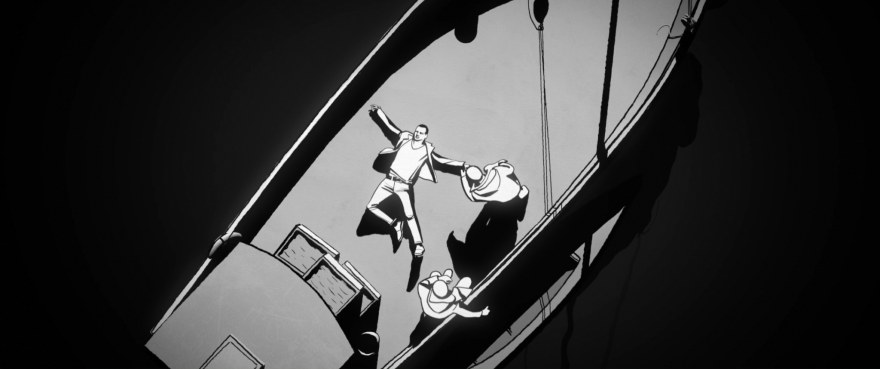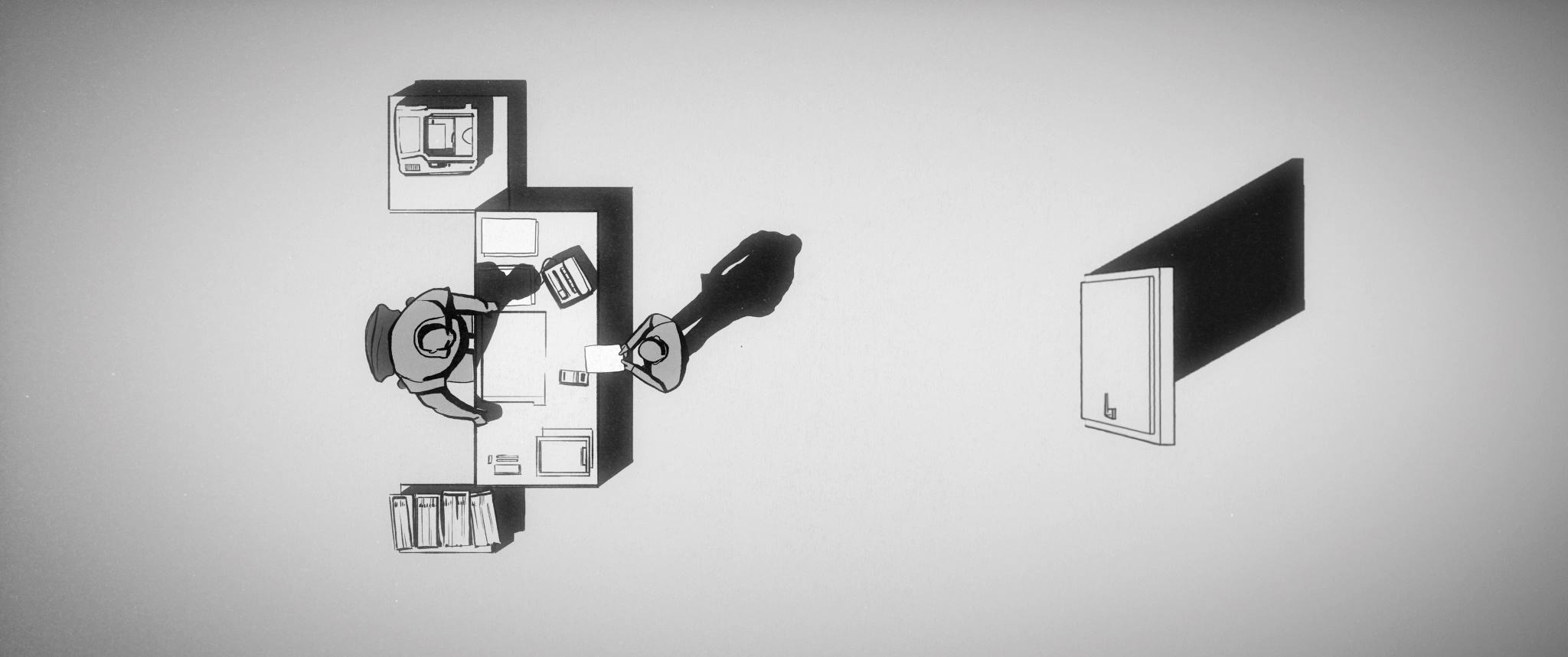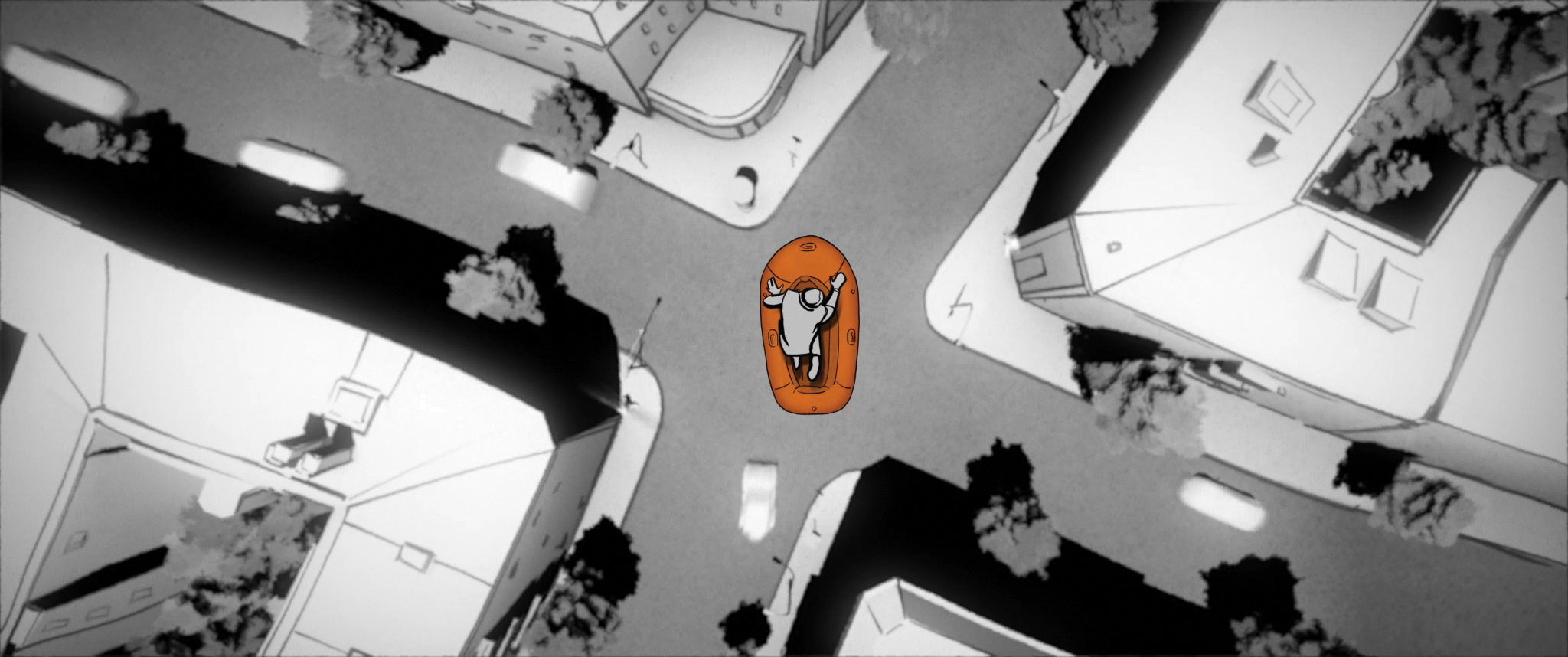Breakfast with Der Übers Meer Kam (The One Who Crossed the Sea)
Interview with Jonas Riemer, director of Der Übers Meer Kam (The One Who Crossed the Sea)
Whose story is this based on? What sort of research did you carry out to tell it?
The film is based on the true story of my uncle, who is also the narrator of the film. In the early 1980s, he fled the GDR and crossed the Baltic Sea in a tiny folding boat to reach West Germany. Today he is a member of the right-wing AFD party and in his opinion, refugees should not be rescued from distress at sea. To get closer to the story and prepare for the interview with my uncle, I read a lot about similar GDR refugee stories and studied right-wing populism (especially the AFD) intensively.
Why did you choose to make a short animation about it?
Everything I knew about him sounded like a grotesque contradiction to me that triggered a thousand questions in me like: how did this courageous person who fled a foreclosed dictatorship become a man who longs for isolation? What is he afraid of? Since these questions have never left me, I saw the opportunity to leave my comfort zone and try to draw an intimate portrait of a multi-faceted personality – which requires a lot of patience and sensitivity. To use animation was obvious to me because it’s a great tool to break down a story to its essence, to abstract it and to leave enough room for the viewer’s own imagination. This also challenges the viewer to form their own opinion.
Can you tell us more about your animation style, your use of black and white and so on?
It was important to me to tell the story objectively and at the same time to weave in a subtle critique. Therefore, I decided to tell the entire film in very long takes and through the observing God’s Eye perspective. This makes the protagonist seem small, lost and interchangeable. The use of black and white was essential to heighten the contrast between the two contradictory themes. In addition, the film is about a person who in a way divides the world into black and white, in right and wrong. But of course the world is much more complex than that and I hope the film encourages the viewer to see the many nuances that are between black and white.
What do you hope your audience will take from it?
I want to deliberately irritate the audience to encourage them to form their own opinions and talk to each other about it. I hope that the absurdity of the story makes it clear that we lose a piece of our humanity through every form of isolation.
What do you think the future holds for short films?
I hope to attend another short film festival in a real cinema in the real world soon. Because the attention given to the films there and the opportunity to talk to other filmmakers is always inspiring and necessary. I would also like to see short films given a bigger platform in the future and online streaming expanded.
If we were to go back into lockdown, what cultural or artistic delights would you recommend to alleviate our boredom?
Watching good films of course, but not too many in a row. I can also recommend keeping input and output in balance. So don’t just consume, but also create something of your own – whatever can get you into a flow (in my case it ́s drawing, writing or cooking).
Der Übers Meer Kam (The One Who Crossed the Sea) is part of International Competition I12.










